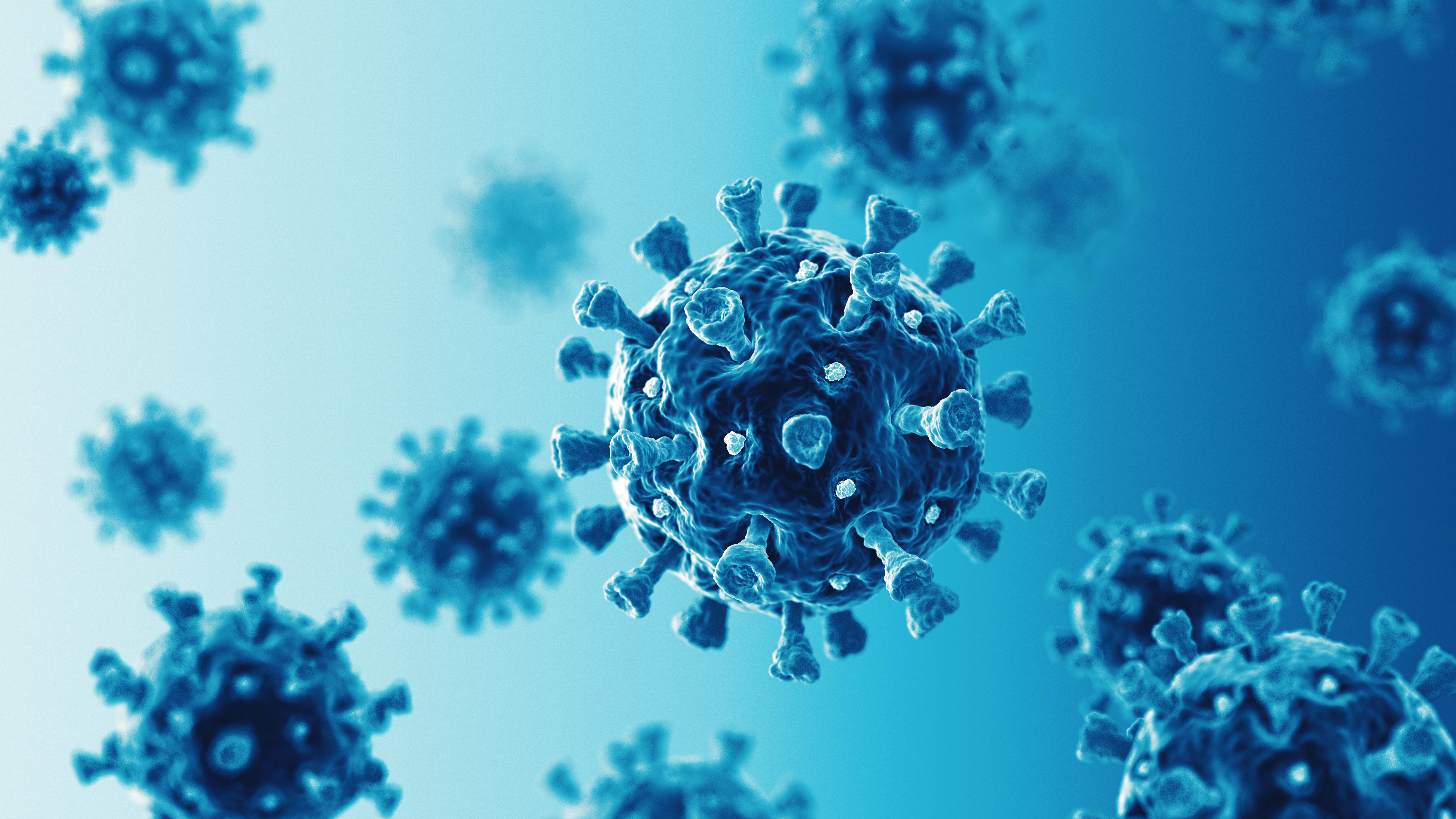
NMT5 coats the receptors of healthy cells and temporarily changes their shape, making it harder for SARS-CoV-2 to infect the cells.

NMT5 coats the receptors of healthy cells and temporarily changes their shape, making it harder for SARS-CoV-2 to infect the cells.
What you need to know
Antivirals are medications that can help your body fight off viruses, including SARS-CoV-2, the virus that causes COVID-19. They work by preventing the virus from infecting healthy cells, which helps your immune system fight off infection. But viruses like SARS-CoV-2 can mutate, and antivirals may not be effective against viral variants.
In a study supported by several NIH Institutes and Centers, researchers used an animal model to identify a drug that can stop SARS-CoV-2 from entering healthy cells in a way that viral variants won’t be able to evade. If it is safe and effective for humans, it may become another powerful tool in the fight against COVID-19, especially as new viral variants arise.
What did the researchers do?
SARS-CoV-2 binds to a specific site, called a receptor, on healthy cells to infect them. Researchers discovered that NMT5 — a variation of memantine, a treatment for neurological disease — can coat SARS-CoV-2 as it travels throughout the body. When the virus tries to infect a healthy cell by attaching to one of its receptors, NMT5 first attaches a chemical to the receptor. This causes the shape of the receptor to change, making it harder for the virus to infect the cell.
Next, the researchers needed to make sure that healthy cells weren’t damaged by NMT5 itself. They found that NMT5 was non-toxic and only changed receptors that were being targeted by the virus. These effects lasted for only about 12 hours, meaning the receptors functioned normally before and after treatment.
Using hamsters as models for the human immune response to SARS-CoV-2 infection, the researchers found that NMT5 reduced the virus’s ability to bind with receptors by 95%. NMT5 also reduced inflammation, prevented damage to the lungs, and dramatically decreased systemic viral levels.
Why is this research important?
Antivirals often work by directly attacking the virus, but viruses frequently mutate in ways that make antivirals ineffective. Because NMT5 works by blocking the body’s own receptors, it may be effective against all future SARS-CoV-2 variants. NMT5 needs additional testing for safety and effectiveness in people, but it has the potential to be a powerful treatment against COVID-19.
Where can I go to learn more?
New drug has potential to turn COVID-19 virus against itself
-
Learn more about the Scripps Research team behind the development of NMT5.
Antiviral Nasal Spray Shows Promise Fighting COVID-19
-
Nasal sprays may be a promising first line of defense against SARS-CoV-2 infection.
-
Learn more about NIH-funded studies on treatments for COVID-19.
Sources
Oh, C., Nakamura, T., Beutler, N., Zhang, X., Piña-Crespo, J., Talantova, M., Ghatak, S., Trudler, D., Carnevale, L. N., McKercher, S. R., Bakowski, M. A., Diedrich, J. K., Roberts, A. J., Woods, A. K., Chi, V., Gupta, A. K., Rosenfeld, M. A., Kearns, F. L., … Lipton, S. A. (2022). Targeted protein S-nitrosylation of ACE2 inhibits SARS-CoV-2 infection. Nature Chemical Biology. https://doi.org/10.1038/s41589-022-01149-6

News and Stories
Read stories about the efforts underway to prevent, detect, and treat COVID-19 and its effects on our health.
 An official website of the United States government
An official website of the United States government

